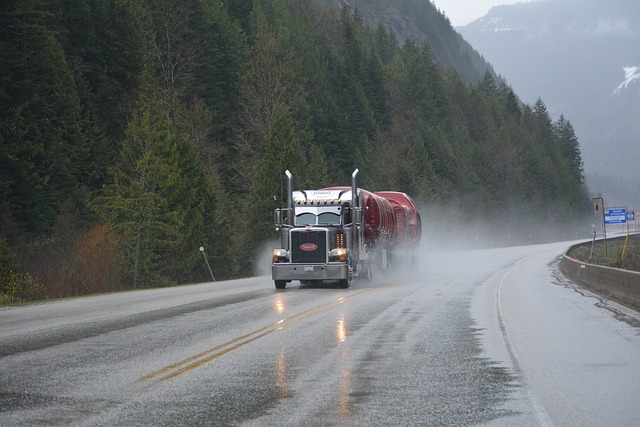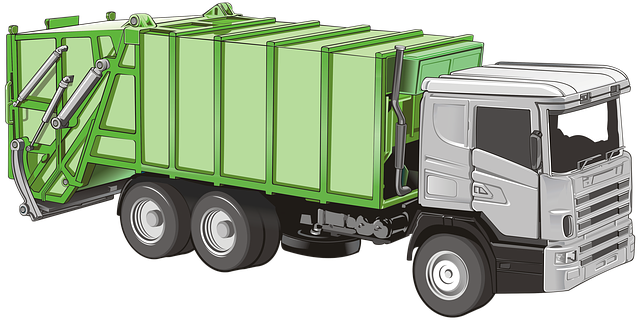When renting a truck, go beyond standard auto policies to secure rental truck insurance tailored to your needs. This protects against gaps in coverage for personal belongings, off-road use, and comprehensive/collision damage. Review policy details carefully, considering add-ons like comprehensive coverage or higher liability limits. For short-term rentals, truck rental coverage offers peace of mind and financial security. Key terms include rental truck liability coverage, cargo protection, and roadside assistance. Always evaluate your options, document insurance details, and verify with your personal insurer to ensure complete protection.
Looking to rent a truck but unsure about insurance options? Understanding full coverage for rented trucks and vehicles is crucial for any renter. This comprehensive guide dives into the intricacies of rental truck insurance, exploring what it covers and what gaps exist. We dissect types of coverage from liability to comprehensive, helping you navigate temporary truck insurance needs. Learn about rental truck policies, your rights, responsibilities, and best practices when renting a vehicle. Discover why adequate insurance for rented trucks is essential for both personal and business truck rental scenarios.
- Understanding Rental Truck Insurance: What It Covers and What It Doesn't
- Types of Coverage: From Liability to Comprehensive for Your Rented Vehicle
- Who Needs Temporary Truck Insurance? Exploring Common Scenarios
- Navigating Rental Truck Policies: Rights, Responsibilities, and Best Practices
Understanding Rental Truck Insurance: What It Covers and What It Doesn't

When renting a truck or vehicle, having the right insurance is paramount to protecting yourself from unexpected financial burdens. Rental truck insurance is designed to provide coverage for temporary use, but it’s important to understand what it does and doesn’t cover. This type of insurance typically includes liability coverage, which protects you against claims for damage or injury caused to others during the rental period. It also usually covers loss or damage to the rented vehicle itself, up to a certain limit.
However, there are gaps in this coverage. Many policies exclude liability for personal items left in the vehicle or damage caused by certain activities like towing or off-road use. Additionally, rental truck insurance often does not cover comprehensive or collision damage, which means you’ll be responsible for repairs if your rented truck is damaged due to accidents or other non-liability events. It’s crucial to review the rental agreement and policy details carefully, considering additional options like comprehensive coverage or higher liability limits to ensure you’re fully protected during your truck rental experience.
Types of Coverage: From Liability to Comprehensive for Your Rented Vehicle

When renting a truck or vehicle, understanding the different types of coverage available is crucial. Rental truck insurance typically includes several key components to protect you and your rental during its duration. One of the most fundamental aspects is liability coverage, which shields you from financial loss if you’re at fault for an accident, covering damages to other vehicles or properties. Comprehensive insurance, on the other hand, offers more extensive protection by covering a wide range of incidents besides accidents, such as theft, vandalism, natural disasters, and more.
For those in need of temporary truck insurance or looking to cover their rental business trucks, specific policies cater to these requirements. These can include additional protections like towing and roadside assistance, personal effects coverage (Protecting your belongings within the vehicle), and medical payments for any injuries sustained during an accident. Such a robust rental truck policy ensures peace of mind while utilizing a rented vehicle, providing financial safeguard against unforeseen circumstances.
Who Needs Temporary Truck Insurance? Exploring Common Scenarios

Whether you’re a construction company needing an extra rig for a short-term project or a small business owner transporting goods to a pop-up store, temporary truck insurance is a crucial consideration. Many individuals and businesses rent trucks and vehicles for specific tasks or events, but these situations often fall outside of their regular insurance policies. In such cases, renting a truck without adequate coverage leaves you vulnerable to significant financial risk in the event of an accident, damage, or liability claims.
Common scenarios include delivery drivers picking up temporary equipment, event organizers transporting decor or rentals, or homeowners using a rented truck for moving. In each instance, standard auto insurance policies typically do not extend to cover these situations fully, leaving a gap in protection known as gaps in coverage. Protecting yourself with rental truck insurance, specifically designed for short-term use, fills this void and provides the necessary liability coverage, cargo protection, and roadside assistance to ensure peace of mind while utilizing rented vehicles.
Navigating Rental Truck Policies: Rights, Responsibilities, and Best Practices

Navigating Rental Truck Policies: Rights, Responsibilities, and Best Practices
When renting a truck, understanding the rental truck policy is crucial to ensuring full coverage and peace of mind. As a renter, you have specific rights and responsibilities that come with temporarily owning this vehicle. The first step is to review the insurance provided by the rental company. Many companies offer various levels of rental truck insurance, from basic liability to more comprehensive packages. It’s essential to know what’s covered and what’s not, especially for high-value items or specialized cargo. Understanding the limits of liability and deductibles can help you make informed decisions about additional insurance options.
Best practices involve verifying that the policy includes adequate rental truck liability coverage, collision damage waiver (CDW), and any necessary insurance for specific uses like towing or hauling. Keep detailed records of all communications with the rental company regarding your insurance needs. If you have a personal vehicle insurance policy, check if it covers rented trucks. Some policies may offer temporary coverage for short-term rentals, but policies vary widely. Always double-check with both your insurer and the rental company to ensure comprehensive protection for your rented truck and its contents.
When renting a truck, understanding the nuances of rental truck insurance is paramount. By grasping what various types of coverage offer—from liability to comprehensive—rental customers can ensure they’re protected against unforeseen events. Whether you’re a casual user or a business owner relying on temporary truck insurance, knowing your rights and responsibilities will navigate you through potential pitfalls. Ultimately, being informed about rental truck policies empowers you to make the best choices for your specific needs, ensuring peace of mind while on the road.
